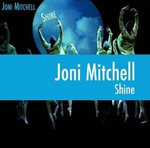A New Brain for a New Season?
More from Sharon Begley’s Train Your Mind, Change Your Brain One of my favorite passages from Sharon Begley’s book has to do with birds. Bird brains. She’s writing about a scientist, Fernando Nottebohm, now at Rockefeller University, who has made the study of bird brains his passion. She writes: Many species have the biological equivalent of a broken record: they sing the same song their whole life, warbling a single melody to attract mates and warn off rivals and claim territories until they die. The songbirds to which Nottebohm was drawn have quite different habits. Canaries and black-capped chickadees and zebra finches adopt and shed new tunes with the fickleness of a teenager turning over her iPod inventory, erasing the previous summer’s repertoire and literally singing a whole new tune with the arrival of each new spring. How do they manage it? Well, it turns out they undergo neurogenesis—they make new neurons. By using radioactive labeling to mark new cells, Nottebohm discovered that canaries generate a reservoir of neuron precursors and these precursors then divide and move to song-control regions of the brain, becoming fully developed neurons as they migrate. New neurons can be created. In adult birds. Not only in baby birds and child birds. Nottebohm went on to publish a paper on this discovery, “A Brain for All Seasons," in which he highlighted two observations. Male canaries learn entirely new songs each spring. And the part of their brains devoted to creating these melodies is up to 99% larger in the spring than it is in the fall. The point here—aside from the sheer wonder of it—is the potential implications of this process occurring in humans. Much of the remainder of Begley’s third chapter, “New Neurons for Old Brains,” looks at some of these implications. One that I find especially fascinating has to do with work of Fred Gage, one of the scientists presenting his work at the Mind and Life summit. Begley writes: Emerging evidence suggests that people who are suffering from depression are unable to recognize novelty. ‘You hear this a lot with depressed people,’ Gage said to the Dalai Lama. ‘ “Things just look the same to me. There’s nothing exciting in life.” ’ It turns out these individuals have a shrunken hippocampus. It may be that depression is the inability to recognize novelty. And this inability to see things as new, as fresh, as different, this is what elicits the feeling of depression. That may be why you want this reservoir, this cache of young cells in the hippocampus. It’s able to recognize novelty, to recognize new experiences. Without that, you will have these fixed connections unable to recognize and acquire new information.’ There is also evidence, he said, that ‘if you can get someone with depression to exercise, his depression lifts.’ Neurogenesis may be the ultimate antidepressant. When it is impaired for any reason, the joy of seeing life with new eyes and finding surprises and novelty in the world vanishes. But when it is restored you see anew. Neurogenesis may be the ultimate antidepressant. When it is impaired for any reason, the joy of seeing life with new eyes and finding surprises and novelty in the world vanishes. But when it is restored you see anew. The how of neurogenesis is...
read more


